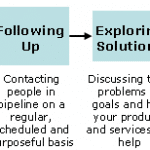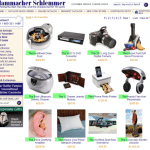If you take the time to ask, we take the time to answer.
Here’s the latest round of questions we’ve tackled, some edited to fit or to preserve confidentiality:
1) Marketing senior programs to retirement communities
We develop programs to keep seniors active. How should we name and market our programs so that retirement communities will buy them? We’re thinking we need a fun and catchy name.
Developing programs and training the staff in communities for older adults is a rapidly growing area. The goal of these programs is usually to extend the period during which older adults still enjoy a high quality of life, and to compress the period during which they experience end-of-life disability…”health span” vs “life span.”
Choose a short, clear name that reinforces your focus on healthy and active aging – but remember that the name you choose is going to be much less important than demonstrating your expertise and know-how in working with this special population. Fun and catchy might be important if you were selling directly to consumers. However, since your real customer is the management team of the retirement community, we actually think you should avoid fun and catchy and go for a name that reinforces your competence and expertise in working with older adults.
You’ll also want to focus on your relationship-building skills, because you’ll be selling your services to community directors and it’s going to take multiple conversations over several months to close each deal. Choose your sales and marketing strategy carefully, because this is a sector where finding communities who value this expertise AND have the budget to pay for it can be quite challenging.
2) Improving public perception of small hospital
How can we change the perception of our small hospital system so that people don’t think “bigger is better”? We’ve grown by acquiring other health systems, but people still don’t seem to appreciate that we’re just as good as a well-known hospital in our region.
Forgive our bluntness, but virtually everyone in a community comes into contact with the local hospital. If they don’t experience it directly, they’re only one or two steps removed from it.
If they don’t perceive quality of care, that’s not a marketing problem. That means that they’re hearing bad stories – not positive experiences – from their neighbors, coworkers, friends and family members.
It’s virtually impossible to market yourself out of a bad perception. British Petroleum (BP) runs appealingly pro-environment ads. But a BP plant explosion in Texas that killed people – and the subsequent investigation that revealed company-wide substandard maintenance practices – are what people remember. Bad perceptions only change if people begin to accumulate pleasantly surprising, positive experiences over time.
That said, the most effective marketing focuses on your clients and customers – AKA patients.
Focus your marketing on wonderful patient human interest stories – ideally stories that showcase the underappreciated aspects of your health system. For example, a story about a preemie who made it because of a top-notch neonatal unit would be a great way to illustrate your expanded capabilities.
That’s much more effective than talking about the latest new brain imaging device acquired by your hospital or bragging about square feet and upcoming construction projects.
3) Reducing dependence on certain referral sources
Our wellness practice specializes in referrals from local agencies. How can we expand our client base? We’re worried about being too dependent on these organizations because they’re seeing budget cutbacks.
First, you’ve got to decide whether you want to expand your list of referring agencies, or switch your focus altogether to consumers or businesses.
Once you’re clear on your target customer, practice growth usually occurs as a result of relationship marketing strategies based on word-of-mouth, referral and credibility-enhancing visibility.
Depending on your type of practice, it may not be ethically permissible to proactively market your services or ask patients or clients for referrals. However, you can almost always seek referrals from non-patients.
Marketing strategies focused on networking and enhancing the visibility and credibility of your practice will also be effective.
4) Health club wants to keep customers longer
I just took a job as sales manager of a health club that’s been open about six months. We really need more customers to stay with us longer. Right now people are leaving within about 30 – 60 days. What should we do?
The most loyal member base for health clubs, fitness centers and wellness centers is one created through relationship marketing and an approach to post-sale customer service and relationship management that builds strong ties with your members – not one strictly based on price. If you do it right, you’ll actually have members who stay in touch – for example, sending you referrals even after they move away. You can’t beat that kind of goodwill.
You can certainly run promotions and offer special deals, which is the traditional health club sales approach (think Bally’s, Gold’s, 24Hour, etc.). Avoid discounting your monthly fee under all circumstances. If you must discount (and we strongly advise against it), discount only the initial sign-up fee.
Even better, hold the line on price but offer extra value in the form of a complimentary personal training session or something else that gives them a “taste” of other appealing products and services you’d be pleased to sell them more of (energy bar, smoothie, massage, etc.)
If you discount your price or start out with a very low introductory price, unfortunately that means that you’ll have attracted primarily extremely price-sensitive members who leave when they see a better deal down the street. And among health clubs, a better deal is always coming down the pike from somebody.
As a result, you’re constantly on a desperate search for new members and never have the opportunity to build strong and lasting relationships that enable you to keep selling products and services to a member base whose needs you truly understand.
5) Marketing medical equipment to docs with integrity
What’s the best way to market with integrity to physicians? I represent a great product with good science behind it, but I hate cold calling and I refuse to manipulate people with typical sales pitches.
Several ideas to get you started:
- Get clear on who your buyer really is. Depending on your equipment, is it docs (and in what specialty and with what kind of patient panel?), physical therapists, specialty nurses, practice managers, business managers, facilities managers, or someone else?Then, identify folks who are gatekeepers or key influencers of these individuals – for example, professional associations are often key influencers. Make sure your marketing efforts address these gatekeepers/influencers, not just the ultimate buyers.
- Look for creative ways to increase your firm’s/product’s visibility to your target customers outside a traditional sales relationship.For example, we’re working with a wellness firm right now that is partnering with someone else in their field to conduct a study. They reach out to docs (their prospects) to invite them to nominate patients for participation in the study. It’s a very effective and non-threatening way to initiate the relationship. And it offers genuine patient benefits, which the docs respect.
- When you’re in a sales discussion, use consultative and question-based selling techniques that focus on uncovering the real needs of the potential customer. Avoid “leading questions” and other traditional hard sales pitches – they don’t work well anyway, and they often feel sleazy to both the salesperson and the prospective buyer.
- Conference and convention participation can work. The key is to pick appropriate venues and create a crystal-clear, highly detailed plan for follow-up and staying top of mind after the initial contact at the conference..
- Hint: follow-up should NOT be a one-time telephone or email sales pitch, which is ineffective and insufficient. A well-thought-out plan can often even avoid the expense of renting a trade show booth.



